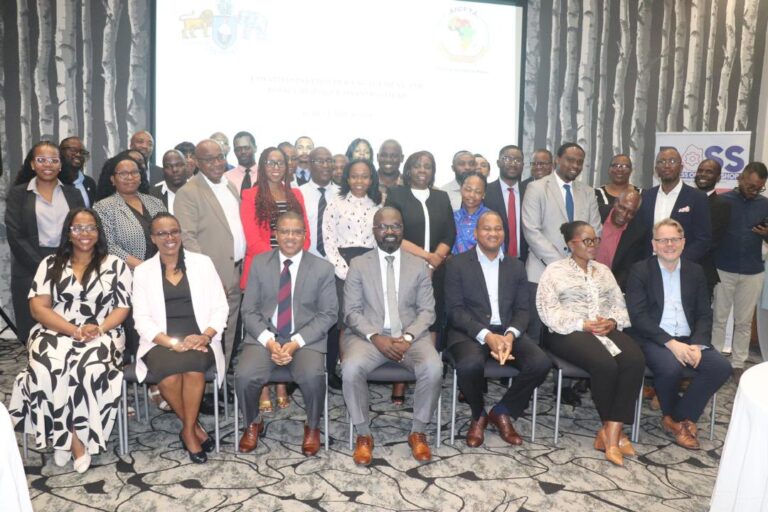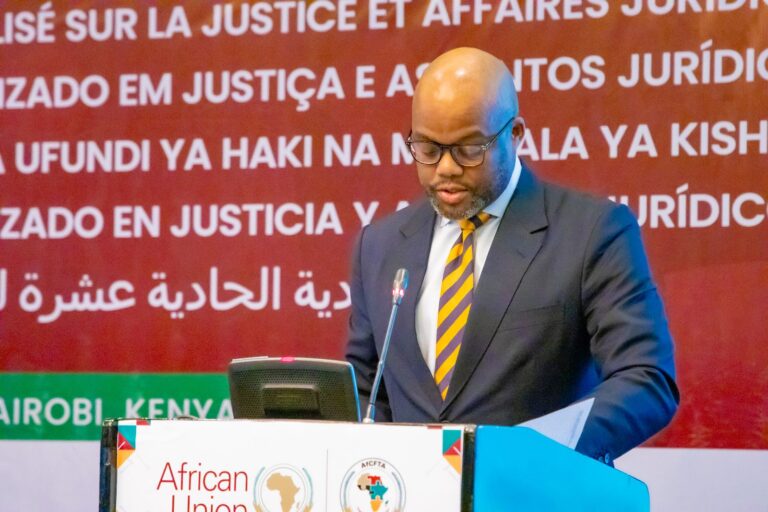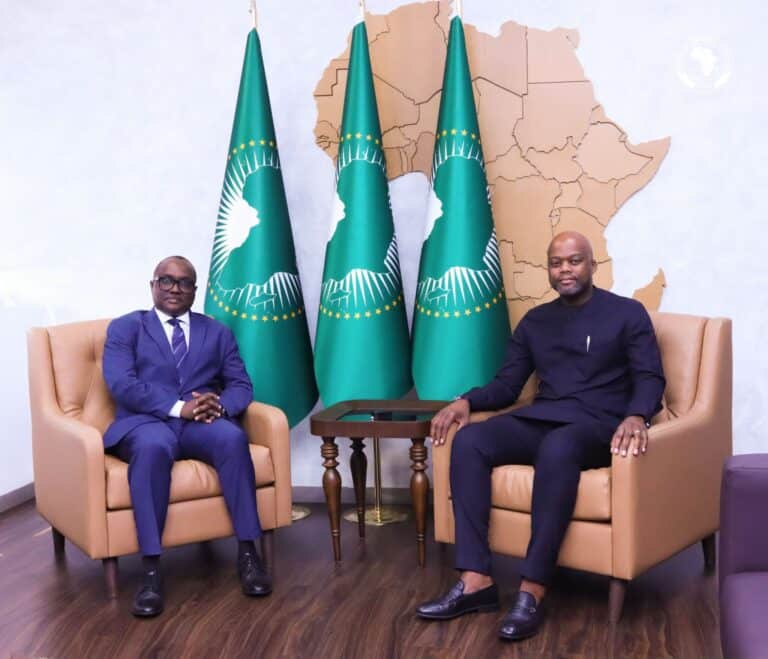In January 2012 during the 18th Ordinary Session of the Assembly of Heads of States and Governments of the African Union held in Addis Ababa, Ethiopia, the African Union agreed on a decision to establish an African Continental Free Trade Area (AfCFTA) with seven acknowledged key fundamental action clusters namely: trade policy, trade facilitation, productive capacity, trade-related infrastructure, trade finance, trade information, and factor market integration. After eight rounds of negotiations from 2015 lasting through to December 2017, an agreement was reached and officially went into force on the 30th of May 2020. Today’s event, the official handover, and commissioning of the AfCFTA Secretariat Building is a culmination of all the great work and tying together of the vision of having a single great and prosperous Africa.
When the call for a suitable location was made, the African Union received several bids, out of which Ghana’s offer stood out, thereby leading us to this great event today to commission this Secretariat at the home of the great Kwame Nkrumah, one of the founding fathers of the Pan-African movement, making this day a rather poetic one, to which he will be glad as our ancestor. In the reassuring words of President Nana Addo Dankwa Akufo-Addo of Ghana, “I assured that Ghana, as caretaker of the Secretariat, would put all the requisite facilities at its disposal, so that it could run as a world-class organization.” We are therefore confident that we have taken a step in the right direction and as rightly put by the president of Ghana, “urge Member States to put in an extra effort to conclude all outstanding implementation issues, for their adoption by the AU Assembly in the next Extraordinary Summit scheduled for December 2020, to pave way for the smooth commencement of trading from 1 st January 2021.”
In his Statement, H.E. Moussa Faki Mahamat, Chairperson of the AU Commission noted that this was a historic milestone in the road to fulfill the vision of our Founding Fathers for Continental Integration, which dates back to the inaugural session of the OAU in 1963.’ He stressed that ‘while the operationalization of the Secretariat was postponed due to the Covid 19 pandemic, the same pandemic has also magnified the urgent need for speed to accelerate economic integration on the Continent.’ H.E. Moussa Faki concluded with the words of Dr. Kwame Nkurumah calling for determination and courage to pursue the task ahead: “the courage to believe, the courage to dare, the courage to do, the courage to fight, the courage to achieve.”
The AfCFTA seeks to provide a stable, predictable, and improved environment for trade facilitation, which has the ability to put in place means to tackle a lot of non-tariff challenges frustrating intra-African trade. A lot of African Countries will still conduct their trading with other global trading partners, however, while the AfCFTA does not necessarily guarantee trade, it however hugely makes the incentive to conduct trading with fellow partners to the agreement, more appealing and also accessible. In the exact words of Wamkele Keabetswe Mene, the Secretary-General of AfCFTA, “The AfCFTA is, therefore, a critical response to Africa’s developmental challenges. It has the potential to enable Africa to significantly boost Intra Africa trade and to improve economies of scale through an integrated market.” He went further to explain that “It also sends a strong signal to the international investor community that Africa is open for business, based on a single rule-book for trade and investment.” This is indeed a change and growth Africa deserves.
All 55 member states of the African Union will be brought together by AfCFTA which allows for market coverage of over 1.2 billion people not limiting the growing middle class, and a collective gross domestic product of over US$3.4 trillion. This also makes AfCFTA the world’s biggest free trade area after the establishment of the World Trade Organization. Economic Commission for Africa (UNECA) also recommends that the AfCFTA has the ability to enhance intra-African trade by 52.3 percent by removing import duties, and also to double this trade if non-tariff barriers are also reduced.
AfCFTA seeks to create and achieve a unilateral continental market for goods and services, with free movement of investments and business personnel. This will also enhance healthy competition at the industry and enterprise level via the utilization of opportunities for scale production, better reallocation of resources, and continental market access. It is also very beautiful to note that for a change, the empowerment of women, young Africans, and also other deprived sectors of the community will be among the focus of AfCFTA as Wamkele Mene assured African’s in his press statement that;
” I, therefore, intend to take concrete steps to ensure that women and young Africans are at the heart of the implementation of the AfCFTA. The AfCFTA must create opportunities for women in trade; amongst others, by lowering the gender wage gap. Young Africans are at the cutting edge of technological innovation for digital trade and e-commerce. “
In this uncertain time of the COVID-19, Wamkele Mene, the Secretary-General of AfCFTA has also explained how AfCFTA makes for a very powerful tool. According to him, a short-term tool has been devised by the Heads of States to launch trade corridors to enable easy access and transit of what the African Union arm for Disease Control and Prevention (Africa CDC) terms as essential goods or germ-killing products like soaps, disinfectants that help combat the pandemic. Also, in other, for these essential goods to become affordable and available to people, the African ministers of trade are exploring the possibility of reducing duties. These are the temporary measures being put in place with the view of accelerating Africa’s industrial development being the long-term goal.
In these unprecedented times of the COVID-19 being the AfCFTA, which will result in increased intra-African trade and drive economic growth in the Member States, provides the best stimulus package and Marshall plans to accelerate the economic recovery of African countries and build the resilience of African economies post-COVID-19.
Going forward, AU Member States are working with the AU Commission and other key strategic and technical partners to ensure that trade under the AfCFTA effectively begins on 1st January 2021 as decided by AU Heads of State and Government on 17 June 2020.


